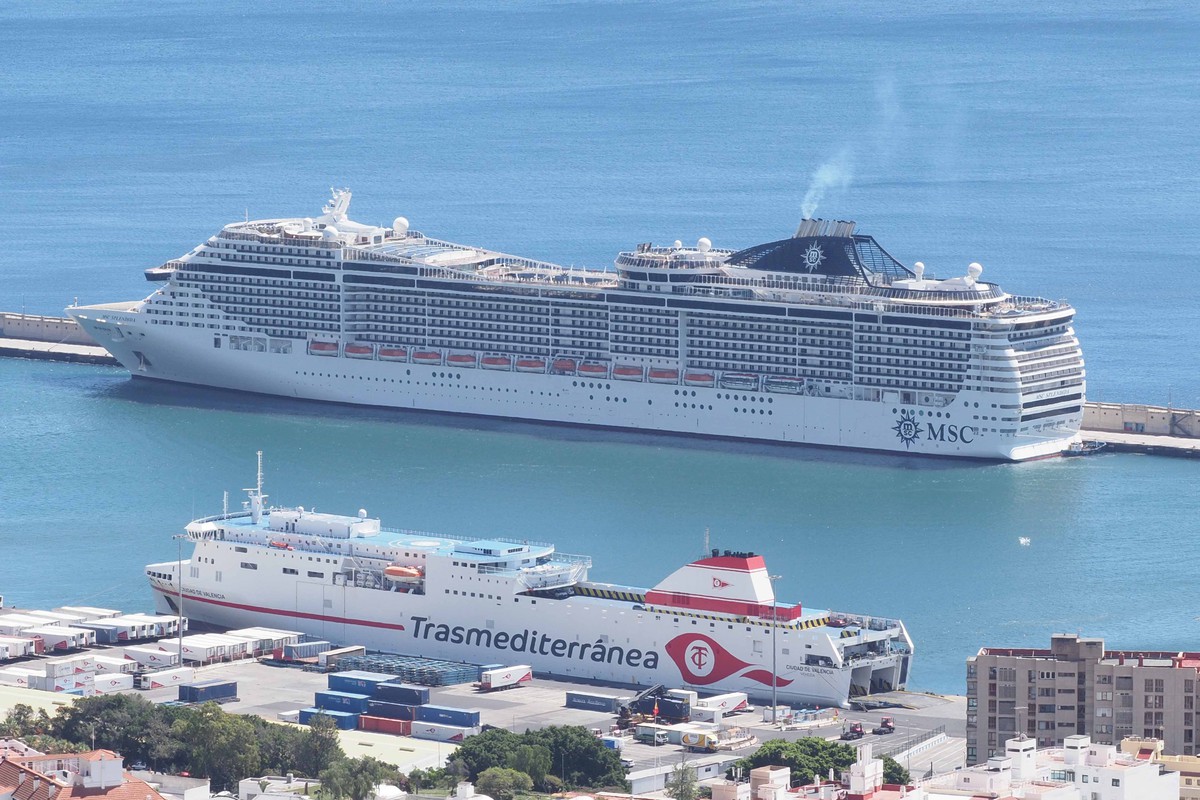MSC Cruises has unveiled an enticing new offering of weekly cruises to the Canary Islands and Funchal (Portugal), as revealed by Pedro Pacheco, the company’s commercial director in Spain, earlier this week.
Setting sail aboard the ‘MSC Ópera’, a vessel boasting a capacity for nearly 2,000 passengers and 800 crew members, MSC Cruises marks its return to the Canary Islands route after a decade. The aim is to broaden its cruise market by presenting an itinerary encompassing nearly all the islands of the archipelago, save for La Gomera and El Hierro, as outlined by Pacheco.
Designed to cater to European, Spanish, and Canarian passengers alike, the itinerary promises a comprehensive exploration of the archipelago, featuring six stopovers at its ports with embarkation and disembarkation points in both capitals, according to Pacheco’s statements during a virtual press conference.
These seven-night cruises are priced at no more than 100 euros per person per night and include full board and onboard entertainment. The ‘MSC Ópera’, originally constructed in 2004 and refurbished in 2016, will undertake 20 sailings until early April.

Pacheco underscored the strategic advantage of Gran Canaria and Tenerife airports for seamless connections to numerous cities across the peninsula and Europe, facilitating the weekly transfer of customers. Additionally, he hinted at potential perks for both Canary Island and mainland cruise passengers, with the company contemplating absorbing part of the air transport costs.
It’s estimated that each week, approximately 3,000 individuals, encompassing both cruise passengers and crew members, will traverse through the capital islands, thereby generating a substantial economic impact. This impact extends to destinations such as Lanzarote, Fuerteventura, and La Palma, courtesy of the scheduled stopovers.
Furthermore, MSC Cruises’ offering complements its winter schedule, accentuating the beaches and natural splendor of the Canary Islands. Pacheco hinted at potential tie-ins with sporting events during these voyages.
Notably, Gran Canaria will be integrated as a port of embarkation, joining the ranks of eight other Spanish ports, including Tenerife, utilized by the group, thus fortifying its position as a frontrunner in port infrastructures.
Pacheco credited the project’s success to collaboration with the port authorities of Las Palmas and Santa Cruz de Tenerife, alongside the airport infrastructures and flight frequencies available to passengers.
Beatriz Calzada, president of the Port Authority of Las Palmas, expressed her delight at the selection of La Luz port as the embarkation and disembarkation point, along with the planned stopovers at other ports in the province, highlighting the anticipated positive impact on quality tourism in the region.
Each transit cruise passenger is expected to generate a daily expenditure of 80 euros, a figure that escalates during embarkation and disembarkation due to accommodation, according to data from a 2019 study.
Commencing on 23rd March, MSC will operate a cruise from Santa Cruz de Tenerife to Venice, tailored specifically to the Canary Islands clientele.
With its headquarters in Geneva, Switzerland, the shipping company aims to expand its fleet to 23 cruise ships by 2025, with a focus on enhancing its luxury line, Explora, introduced in August 2023. Additionally, plans include the incorporation of four more ships by 2028, with a strong emphasis on sustainability improvements, requiring a total investment of 10 billion euros.






